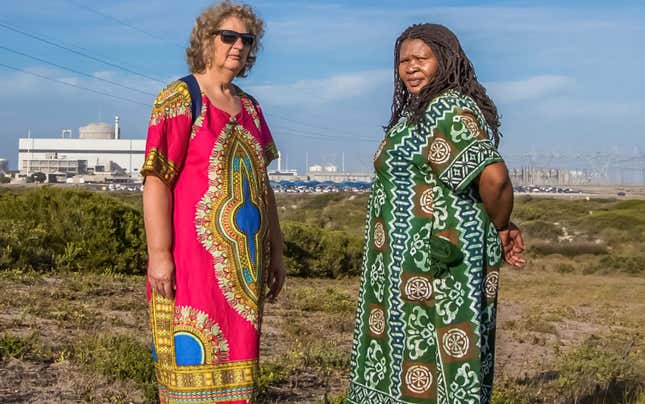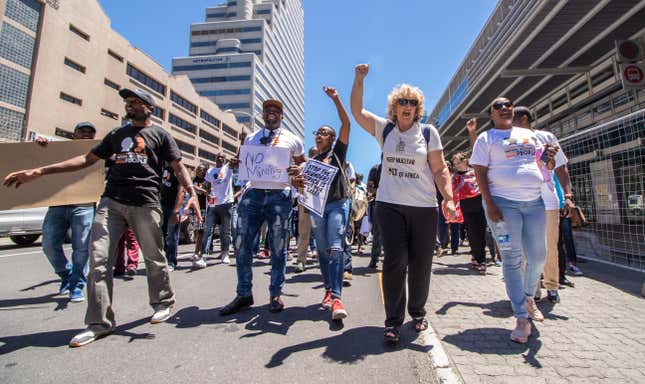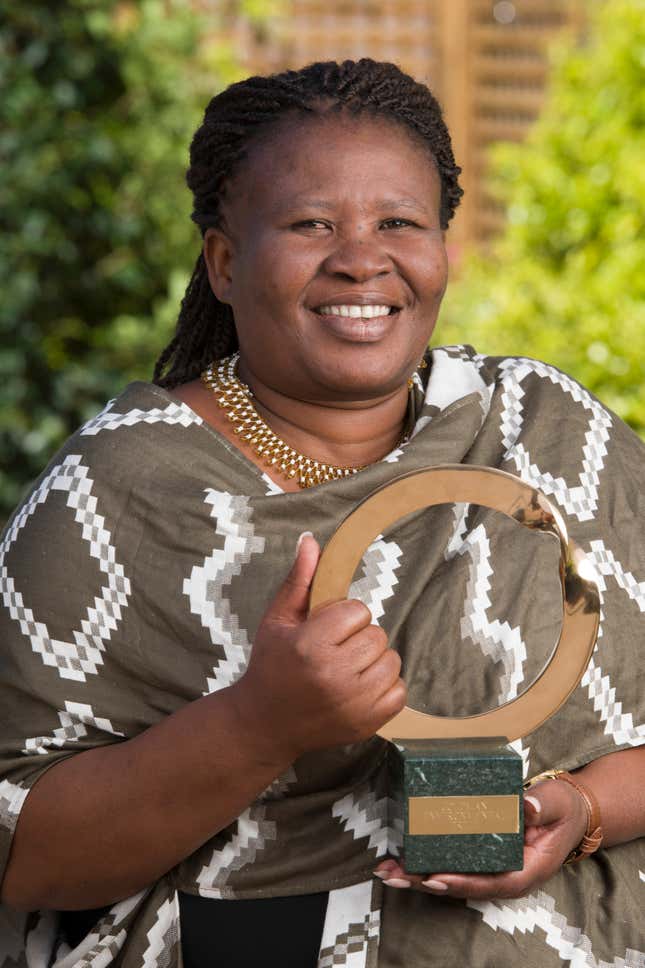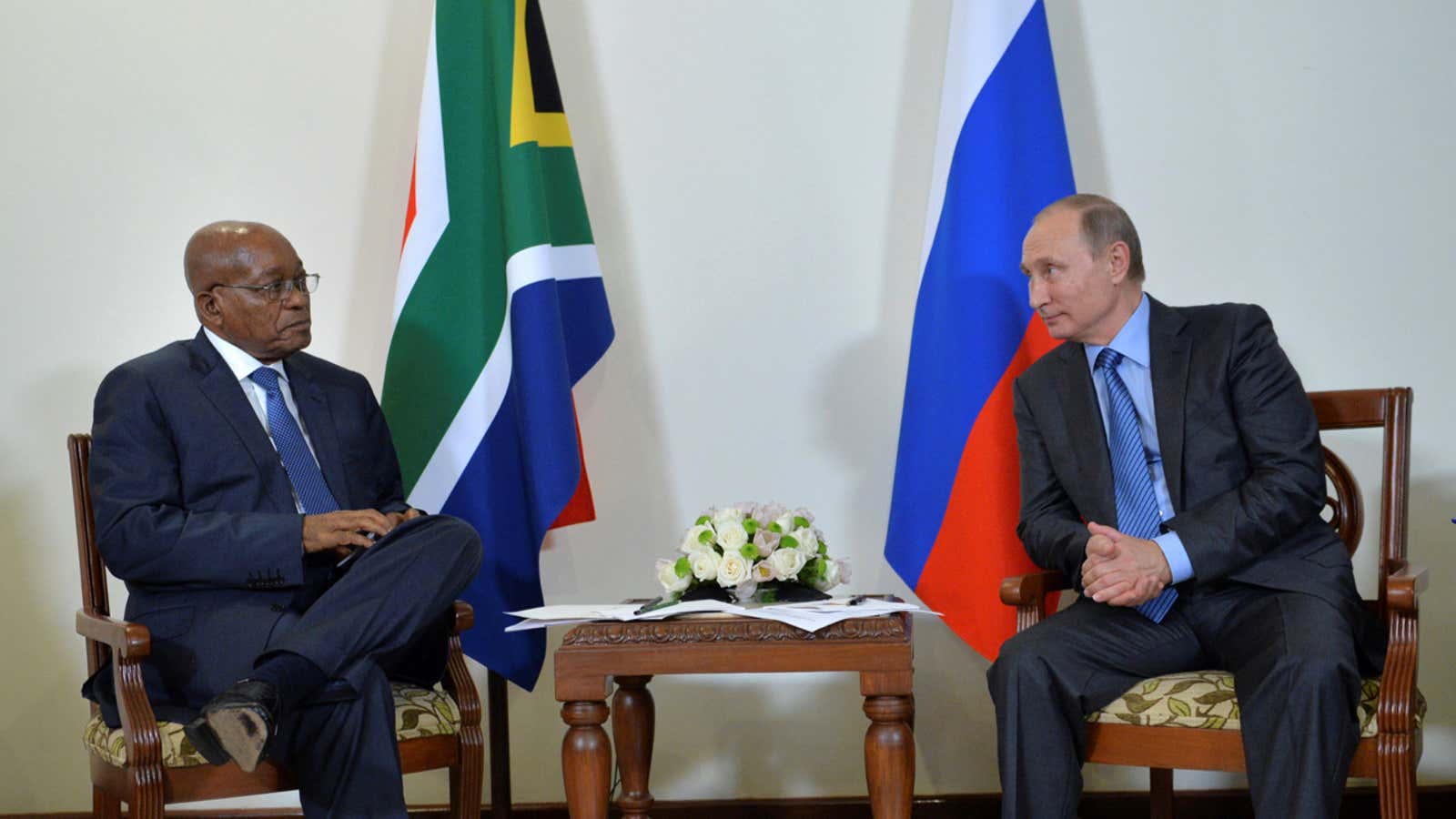It made no sense that a country like South Africa, with year-round sunshine, would abandon its renewable energy options to focus on nuclear power instead.
But a nuclear energy deal between South Africa and Russia has been at the center of much of South Africa’s political uncertainty as well as corruption allegations under former president Jacob Zuma, who resigned in February. The deal, which would have cost South Africa $76 billion to build a Russian-run nuclear energy plant, would have gone ahead if it weren’t for two women. For their work, Makoma Lekalakala, 52, and Liz McDaid, 55, were among those honored with the Goldman Environmental Prize in San Francisco on Apr. 23.
In 2014, Lekalakala received a tip from environmental activists in Russia that the South African government had signed a secret deal with the Russian state nuclear energy corporation Rosatom to build a massive new power plant. As the head of a volunteer-driven organization called Earth Life, Lekalakala began to stage small protests around Johannesburg and outside the office of the national power supplier Eskom, but needed to create more awareness about the deal.

She contacted Liz McDaid, an old friend and a veteran anti-nuclear activist in Cape Town. Every Wednesday morning, McDaid and a handful of protestors from the Southern African Faith Communities’ Environment Institute stood outside parliament to raise awareness about the deal, which would have put the state further in debt.
As South Africans learned more about the proposed nuclear bid, the two women and the NGOs they represent approached a court in October 2015 to compel the state to follow the law in procuring nuclear deals. They also petitioned the energy and public enterprises ministers to allow public consultation before any deals were finalized.

By then, the energy minister had already presented the Russia deal to parliament as an intergovernmental agreement (pdf) between Pretoria and Moscow that would see 9,600 megawatts of nuclear power added to South Africa’s grid. The minister swore that no binding agreement had been signed without the proper oversight, but the environmentalists argued otherwise.
Controversy over the deal led to the firing of former finance minister Nhlanhla Nene, who refused to sign off on it. The deal would have also allegedly enriched Zuma’s son Duduzane Zuma, and his allies the Gupta family, who had already acquired a uranium mine allegedly in preparation for the nuclear project. In the meantime, Vladimir Putin’s political image began to loom larger over daily politics in South Africa.

Eventually, the two virtually unknown NGOs won their court bid and a judge ruled that any deal with Russia was unlawful. A judge set aside any agreement with Rosatom, signed or not, and ordered that if South Africa wanted nuclear power it would need to restart the bidding process, this time with the proper public involvement. With Zuma seen out of office, in January then deputy president Cyril Ramaphosa scuppered any nuclear ambitions when he said South Africa simply has no money to build a nuclear power station.
The environmental prize comes nearly a year since the court ruling, but Lekalakala is still cautious about the use of nuclear energy in South Africa, even with Zuma gone. In January, Rosatom entered the South African economy anyway with a new deal to develop and manage a hydro-electric power scheme. Still, any energy deals in South Africa will likely come under great scrutiny from now on.
“The nuclear deal was—and potentially still is—a major threat to the livelihood of South African citizens and our quality of life,” said Lekalakala. “There are other ways of generating energy, ways that are clean and affordable, and puts the power in the hands of the people.”
